Modules, Assignments, & Activities
FOR TEACHING CONSUMERISM & CLIMATE CHANGE
Understanding Your Electronics
Ever wonder where your electronics come from and where they go? This assignment provides an opportunity for students to investigate the consequences of their use of electronics, especially smartphones.
Description:
We are often unaware that our products cross the world and impact thousands of individuals before they arrive in our hand. We also may not know where our electronic waste ends up. Utilizing five legitimate website, please investigate the supply chain or life cycle of your smartphone or computer. Write a one-two page reflection using your sources to describe the life of your smartphone. Additionally, explain how this process may or may not be in line with your values. Below are some articles to help you begin (these do not count toward your five sources).
Cost to produce and IPhone 7
fortune.com/2016/09/20/iphone-7-cost/
Apple, Samsung and Sony under fire over child miners in Africa
cnet.com/news/apple-samsung-and-sony-under-fire-over-child-miners-in-africa/
Where does your Iphone come from?
consumerist.com/2016/08/05/it-takes-dozens-of-companies-to-make-your-iphone/
Computer recycling West Africa style – BBC
Slavery Footprint
Sadly, there are more slave in the world today than at any time in history and it is happening all over the world including the United States. They often work in resource extraction (mines), in textile factories, agriculture, or are human trafficked as prostitutes. Below is a short activity/questionnaire that gives students a sense of how many slaves work for them. This can be used as a springboard for class discussion or as a homework assignment.
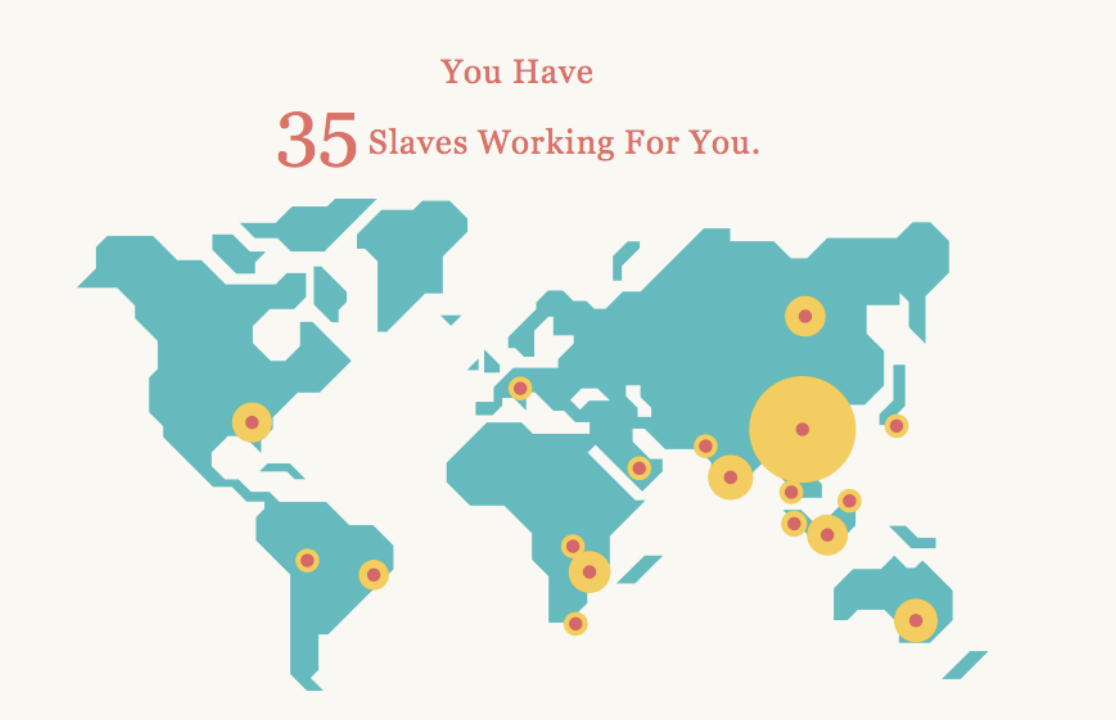
Earth Overshoot Day
How many earths would it take to sustain your lifestyle? Taking the average middle-class U.S. lifestyle, estimates vary between 3 and 7 earths. This online questionnaire takes students through their unsustainable consumption. Like the activity above, this can be used either for discussion or as a homework assignment. There are multiple online versions of this activity.
Overshoot Day
Ecological Footprint – Measure your ecological footprint
footprintnetwork.org/our-work/ecological-footprint/
My Footprint
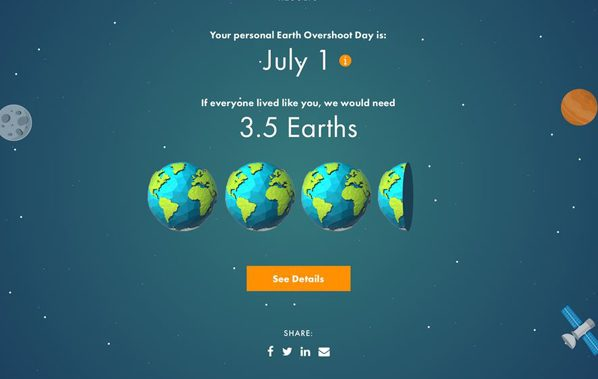
Food Miles Activity
Please choose the typical 3 meals that you eat during a typical day. Find out all of the major ingredients of the food in the meal and calculate roughly how many miles it took to get from the country of origin to your plate in San Luis Obispo. Investigate what nation is the largest producer of X ingredient and then use Google maps to calculate how many miles it took from that nation (if you are not sure the exact location, use the capital) to your plate. Please find at least ten different ingredients not including the example ingredients below. DO NOT JUST LOOK AT THE BACK OF THE PACKAGE! THINK ABOUT WHERE THE FOOD CAME FROM BEFORE BEING PROCESSED AT THE PLANT ON THE BACK OF THE PACKAGE.
Below is a student example:
Food Miles
Breakfast: buttered toast and honey with a glass of milk
Butter from Arlington, Virginia:
Milk from Arlington, Virginia: ~2,818 miles
Salt in milk Mexico City, Mexico: ~3,412 miles
Salt in bread from Chengdu, China: ~7,034 miles
Sugar in bread from Brazil: ~6,460 miles
Honey from Beijing, China: ~7,500 miles
Milk from San Luis Obispo, California
Local Milk (I buy local supply): ~10 miles
Fortified Calcium in Milk from Beijing, China: ~7,500 miles
Total Breakfast: 41,768
Lunch: Swiss Grilled Cheese Sandwich on White Bread with Tropicana orange juice
Swiss cheese from Monroe, Wisconsin:
Milk in cheese Monroe, Wisconsin: ~2,098
Salt in cheese from Chengdu, China: ~7,034 miles
Bread from Mexico City, Mexico:
Wheat in bread from Mexico City, Mexico: ~3,412 miles
Salt in bread from Chengdu, China: ~7,034 miles
Sugar in bread from Brazil: ~6,460 miles
Lettuce from Salinas, CA:~127 miles
Oranges in Orange Juice from Tallahassee, Florida: ~2,420
Fortified Calcium in Orange Juice from China: ~7,500 miles
Sugar in Orange Juice from Hawaii: ~3,823 miles
Total Lunch: 39,908
Dinner: Progresso Soup Clam Chowder and a glass of SLO water
Clam Chowder from Richmond, Virginia:
Clams in Clam Chowder from Richmond, Virginia: ~2,771 miles
Potatoes in Clam Chowder from Boise, Idaho: ~852 miles
Salt in Clam Chowder from Chengdu, China: ~7,034 miles
Pepper in Clam Chowder from Phu Quoc, Vietnam: ~8,143 miles
Sourdough Bread from San Luis Obispo: ~10 miles
Wheat in bread from Kansas City, Kansas: ~1,770 miles
Salt in bread from Chengdu, China: ~7,034 miles
Sugar in bread from Brazil: ~6,460 miles
SLO Water from Santa Margarita Lake : ~20 miles
Total Dinner: 34, 094
Total Food Miles: 115,750
I recognize that these are only the major ingredients. The total would be much higher if I included minor ingredients like spices, coloring, artificial flavorings, etc..
Distance Around the Earth: ~25,000 miles
My single day food intake traveled approximately 4.6 times around the earth to arrive on my plate.
Privilege of Ignorance
- The capacity to disregard information, intentionally or unintentionally, about the impact of one’s livelihood conditions and choices on others and the environment
In many ways we are disconnected from what we eat, what we wear, what we buy. We have no idea where it came from, who made, it, how it arrived, or sometimes where it will end up. This is the privilege of ignorance. One simple example is below.
Example: What crop is this?
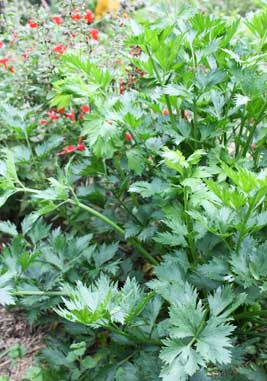
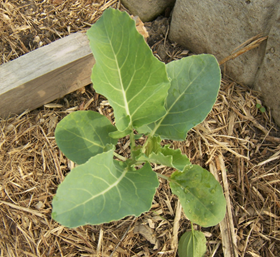
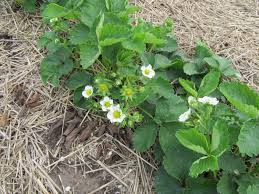
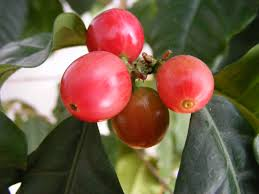
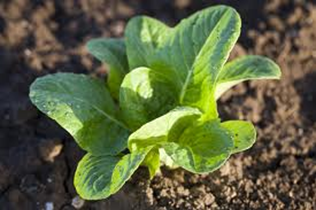
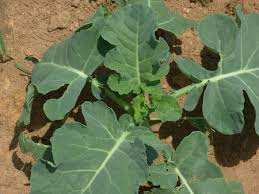
The Mexican Fisherman
This short story encourages students to think about how their values in comparison to broader cultural values.
An American businessman was standing at the end of a pier in a small coastal Mexican village when a fisherman docked his small boat. Inside the boat were several large yellow fin tuna. The businessman complimented the fisherman on the quality of his fish and asked how long it took to catch them. The fisherman explained there were many fish in the local reefs and it only takes a little while to catch what is necessary. The businessman then asked why he did not stay out longer and catch more fish, to which the fisherman replied that he had enough to support his family’s immediate necessities and did not need to catch any more.
The American then asked, “But what do you do with the rest of your time?”
The Mexican responded, “I sleep late, play with my children, take a siesta with my wife, stroll into the village each evening where I sip wine and play guitar with my amigos. I have a full and busy life, señor.”
The businessman scoffed. “I have a Master’s in Business Administration from a prestigious Ivy League university and could help you. You should spend more time fishing and with the proceeds buy a bigger boat. With the proceeds from the bigger boat you could buy several boats. Eventually you would have a fleet of fishing boats. Instead of selling your catch to a middleman you would sell directly to the processor, after which you could open your own cannery. You would control the product, processing, and distribution. Once you have accomplished these goals, you would need to leave this small coastal fishing village and move to Mexico City, then Los Angeles, and eventually New York City where you would run your expanding enterprise.”
The fisherman asked, “But señor, how long will this all take?”
To which the businessman replied, “15-20 years.”
“But, what then señor?”
The businessman laughed and said, “That is the best part. When the time is right you would announce a stock market launch of your business and sell your company to the public and become very rich. You would make millions.”
“Millions, señor? Then what?”
The American said, “Then you would retire. Move to a small coastal fishing village where you would sleep late, play with your kids, take a siesta with your wife, stroll to the village in the evenings where you could sip wine and play your guitar with your friends.”
Discussion Questions:
- How may this story apply to your life?
- The U.S. consumes more per person than any other nation in the world. Yet, we are not the happiest nation and we wrestle with high crime and incarceration rates, addiction issues, continual war with multiple nations, high suicide rates, among other social ills. How do we make sense of this?
- Imagine you are 80 years old. Reflecting on your life, what have been your priorities and values?
“What Can I Do?”
The goal of this assignment is to understand the opportunities we have to be agents of change. I have found that people often want to address a particular problem in the world, but are often too “busy” to sit down and think about the roots of the problem and how they can actually make a difference.
This assignment has two parts. In the first section, please explain what problem (inequality or issue) you would like to see change in the world. Then briefly answer why you think this problem exists. This should take about one page. Second, please write about how you can be a change agent. What skills (abilities, education, etc.), resources (material, time, energy, enthusiasm, etc.), and social networks (family, friends, business associates, etc.) do you have? I recommend addressing a small problem or a small part of a large problem. Please ensure that your idea is feasible for you to implement within one year.
The assignment must be typed and two full double-spaced pages. Please use and underline at least six concepts/terms from lecture or the readings and three references in your reflection. It is worth ten points.
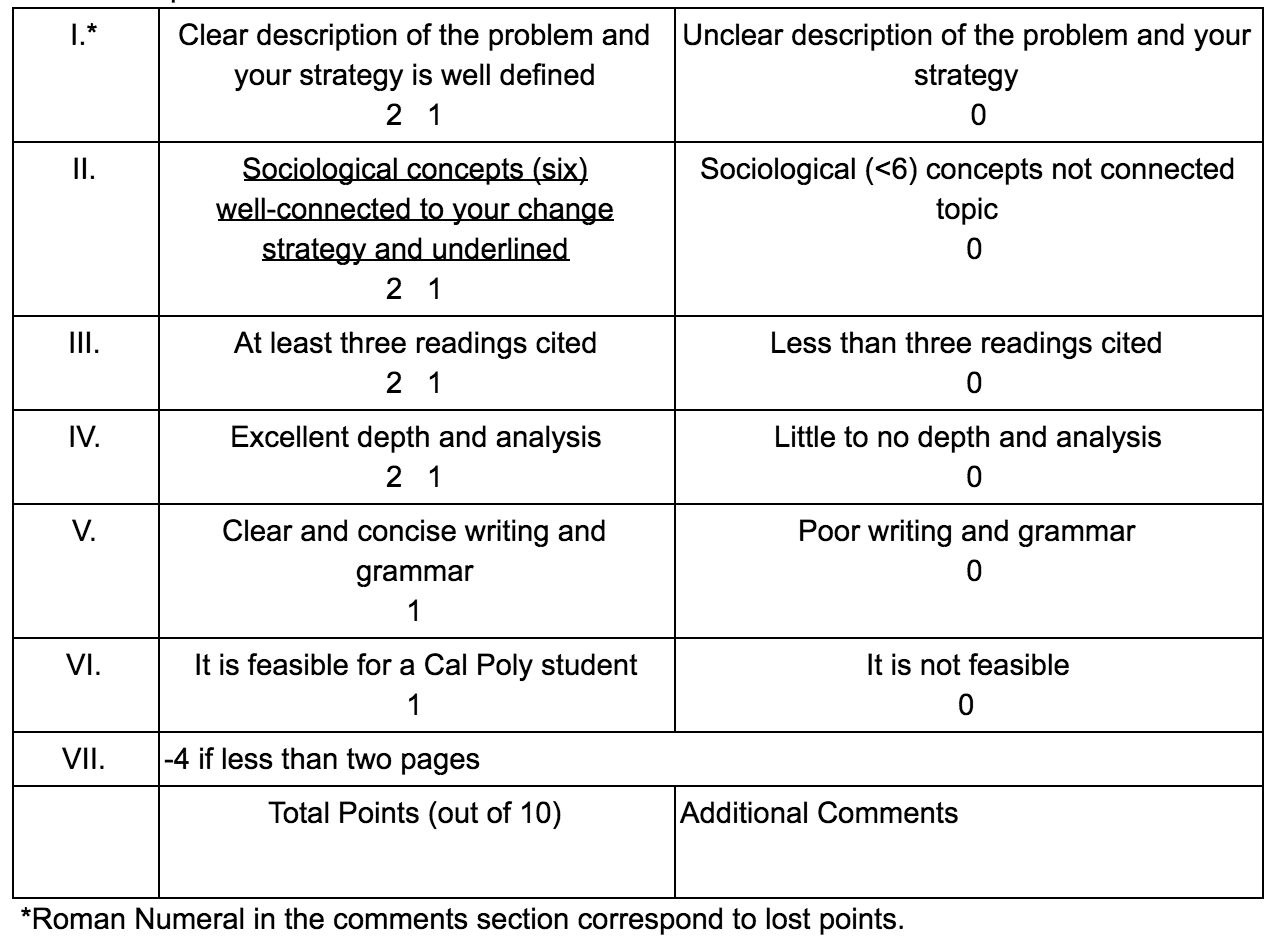
Quotes to Discuss
Divide up these quotes among students. Have them partner and discuss what it means as it relates to consumerism and their own lives.
“I believe the great Almsgiver will charge me with theft if I do not give what I have to one who needs it more.” ~St. Francis of Assisi
“It is reasonable that everyone who asks for justice should do justice.” ~Thomas Jefferson
“There are many people who talk about the poor, but there are very few who talk to the poor.” ~Mother Teresa
“Whenever you are in doubt, apply the following test: recall the face of the poorest and weakest person you may have seen and ask yourself if the step you contemplate is going to be of any use to them.” ~Mohandas K. Gandhi
“Work is love made visible.” ~Kahlil Gibran
“Do all the good you can, by all the means you can, in all the ways you can, in all the places you can, at all the times you can, to all the people you can, as long as ever you can.” ~John Wesley
MENU OF RESOURCES
